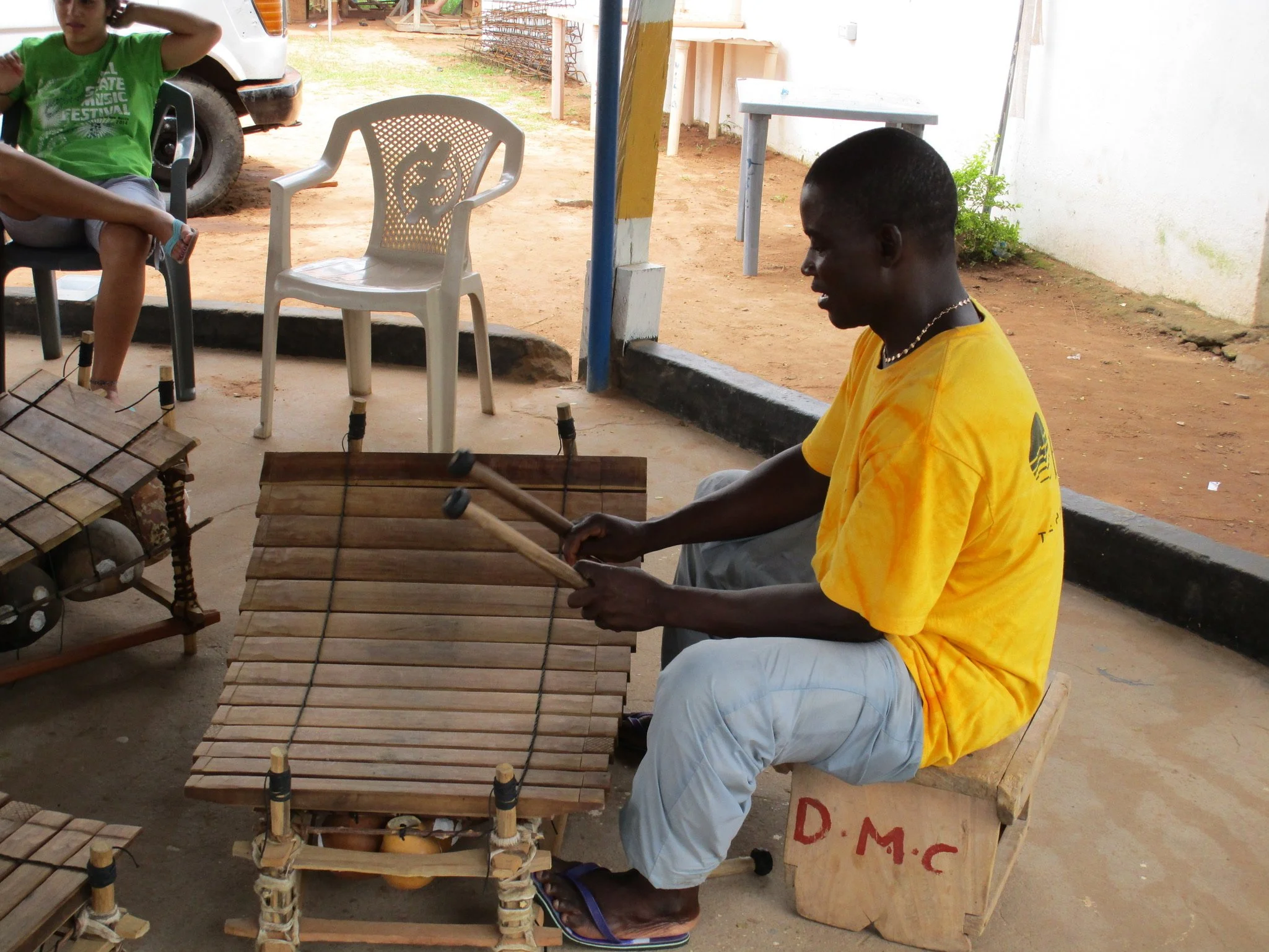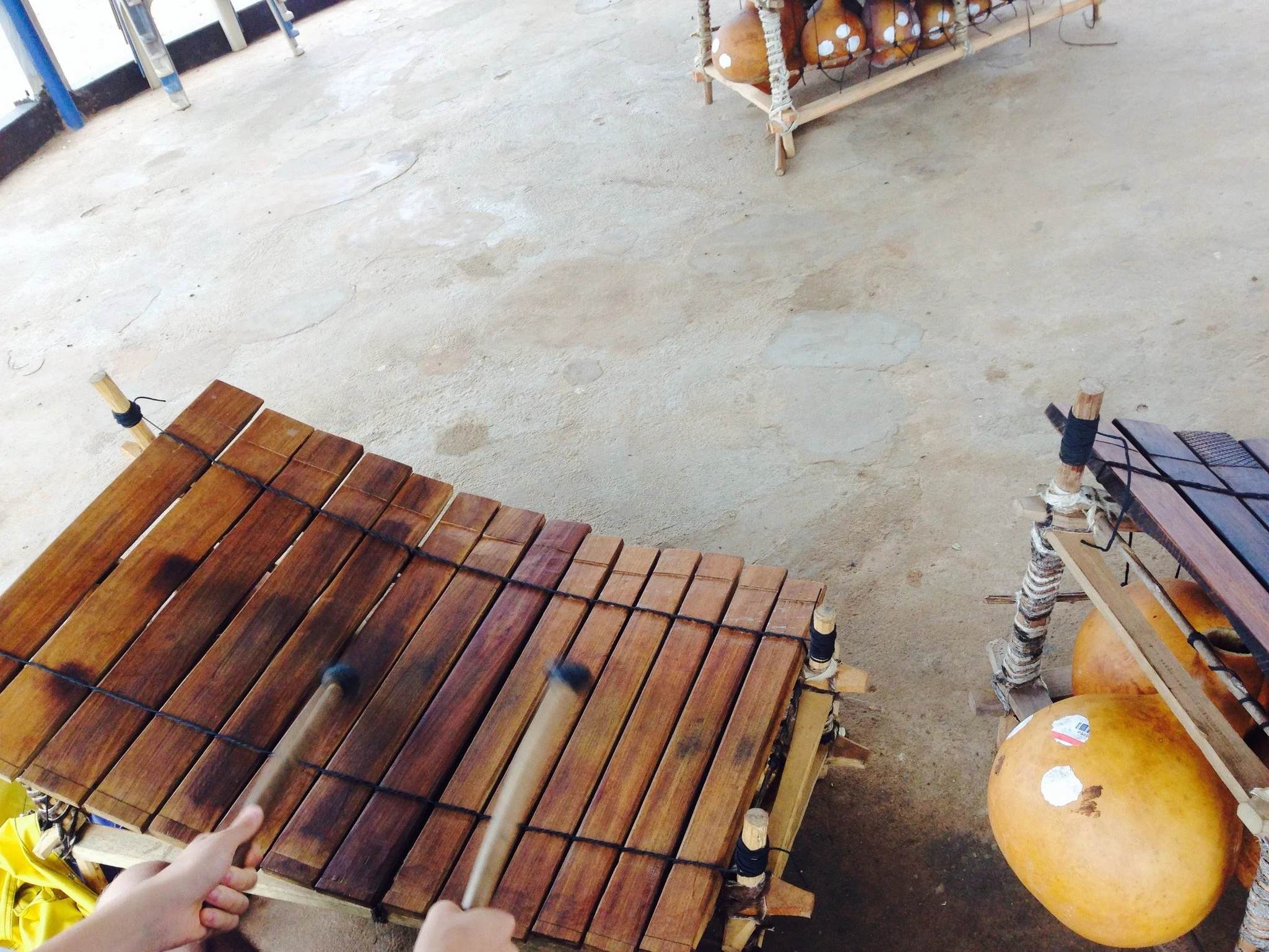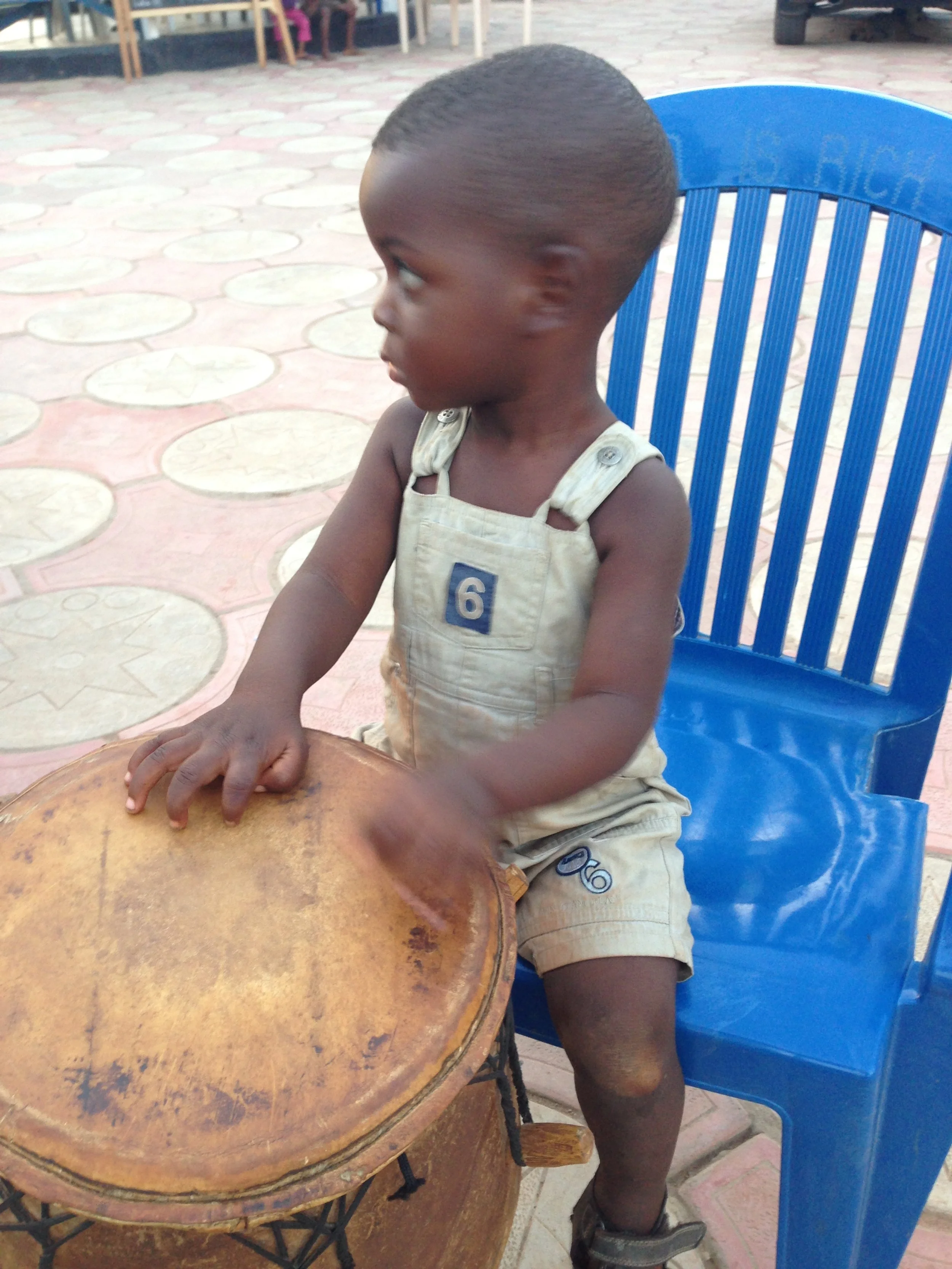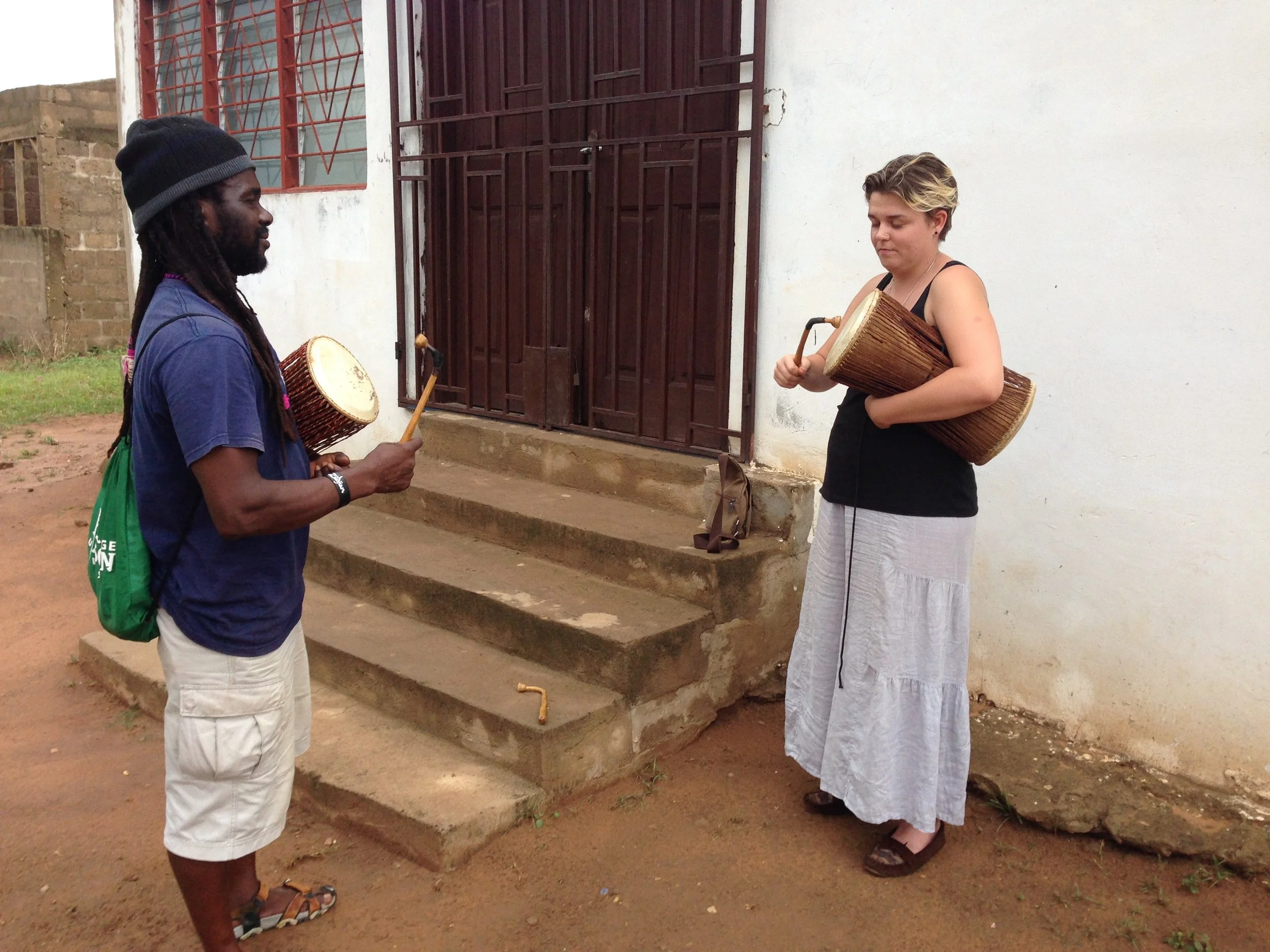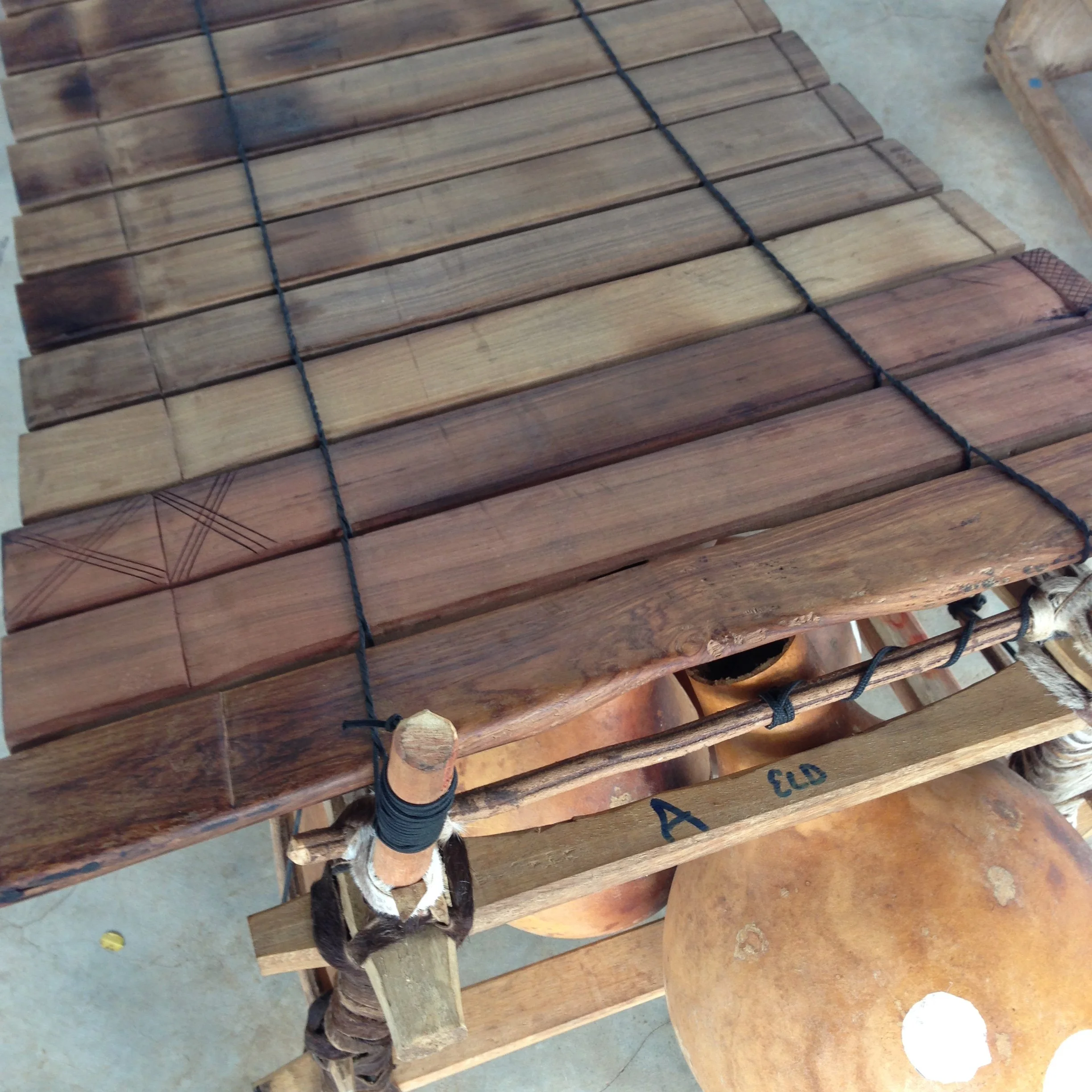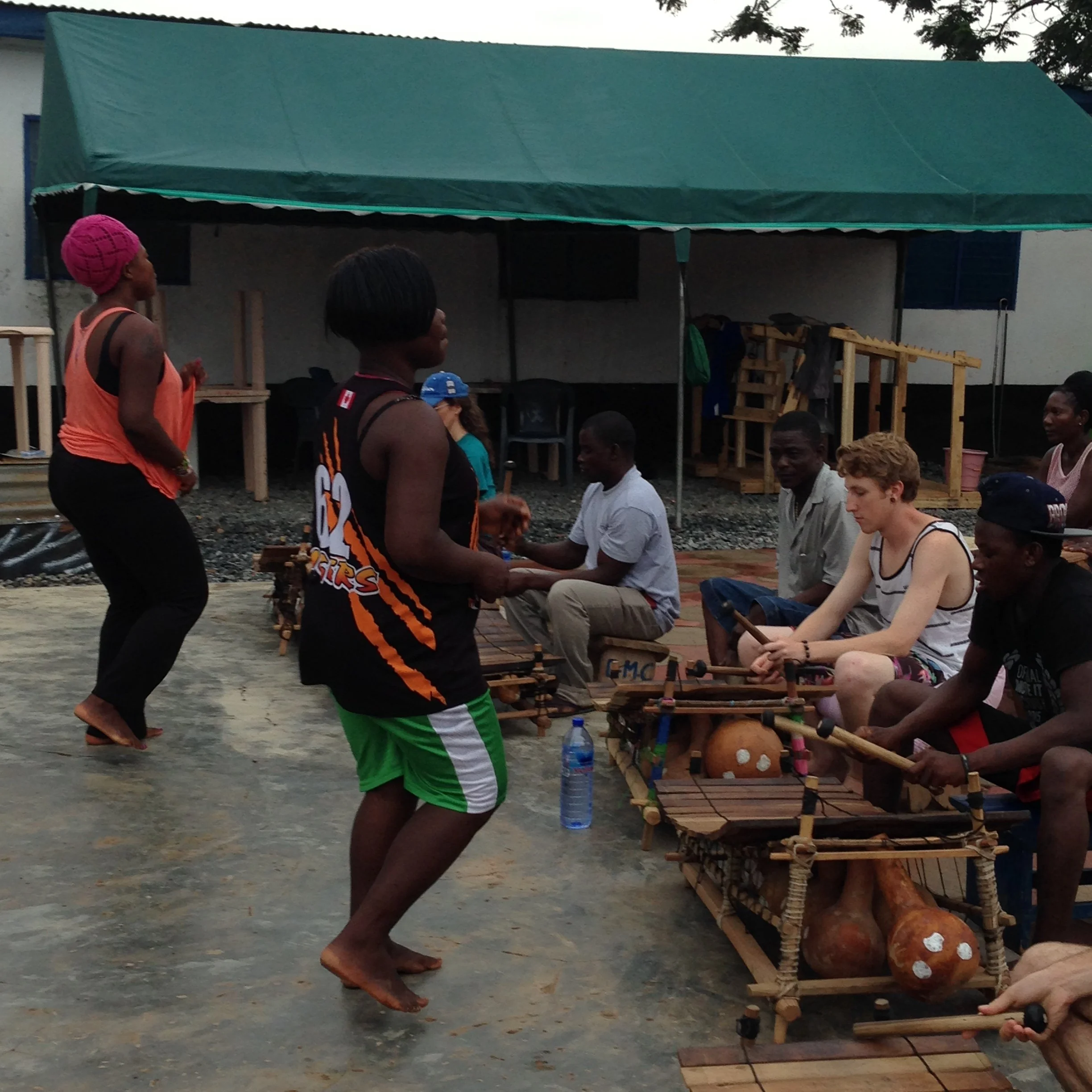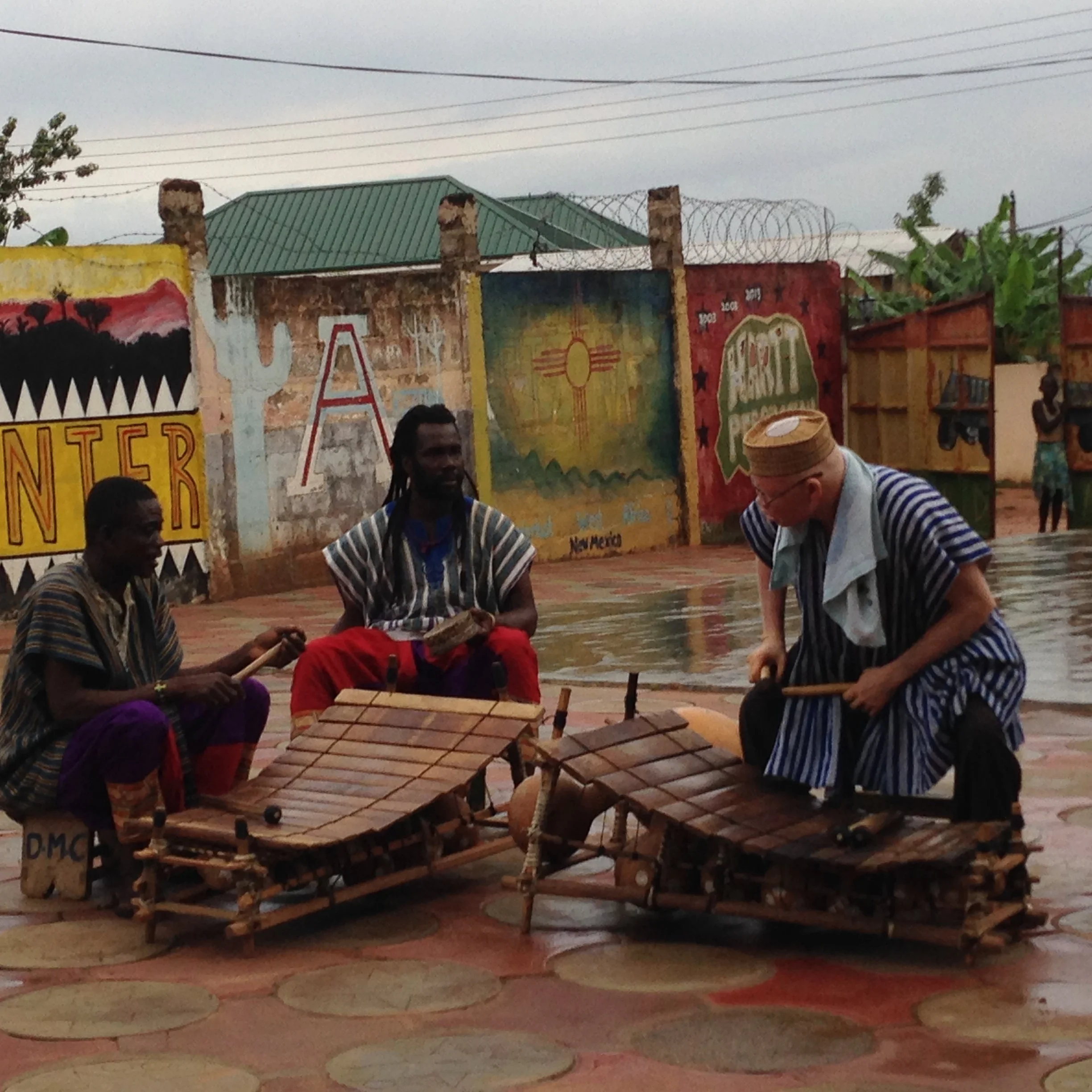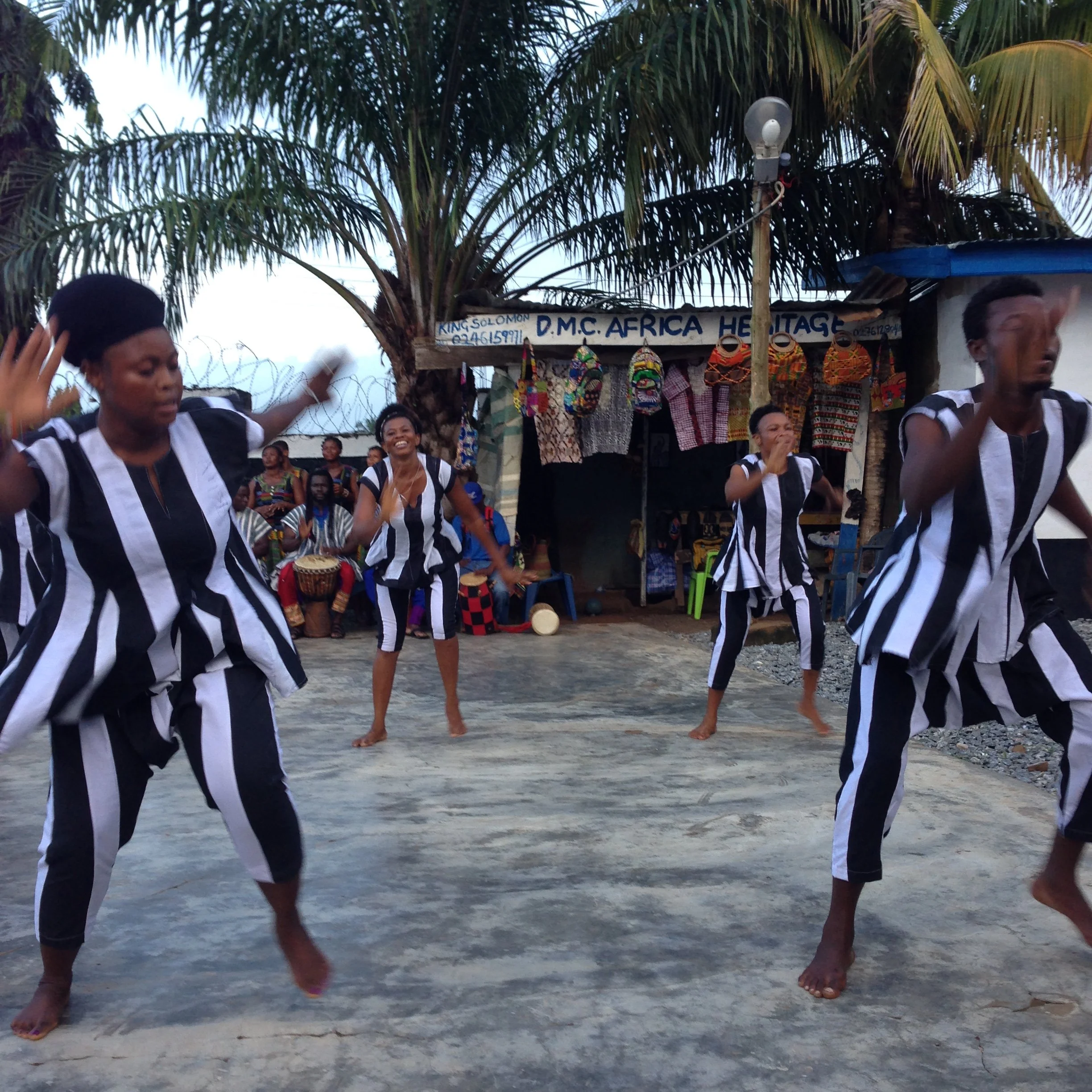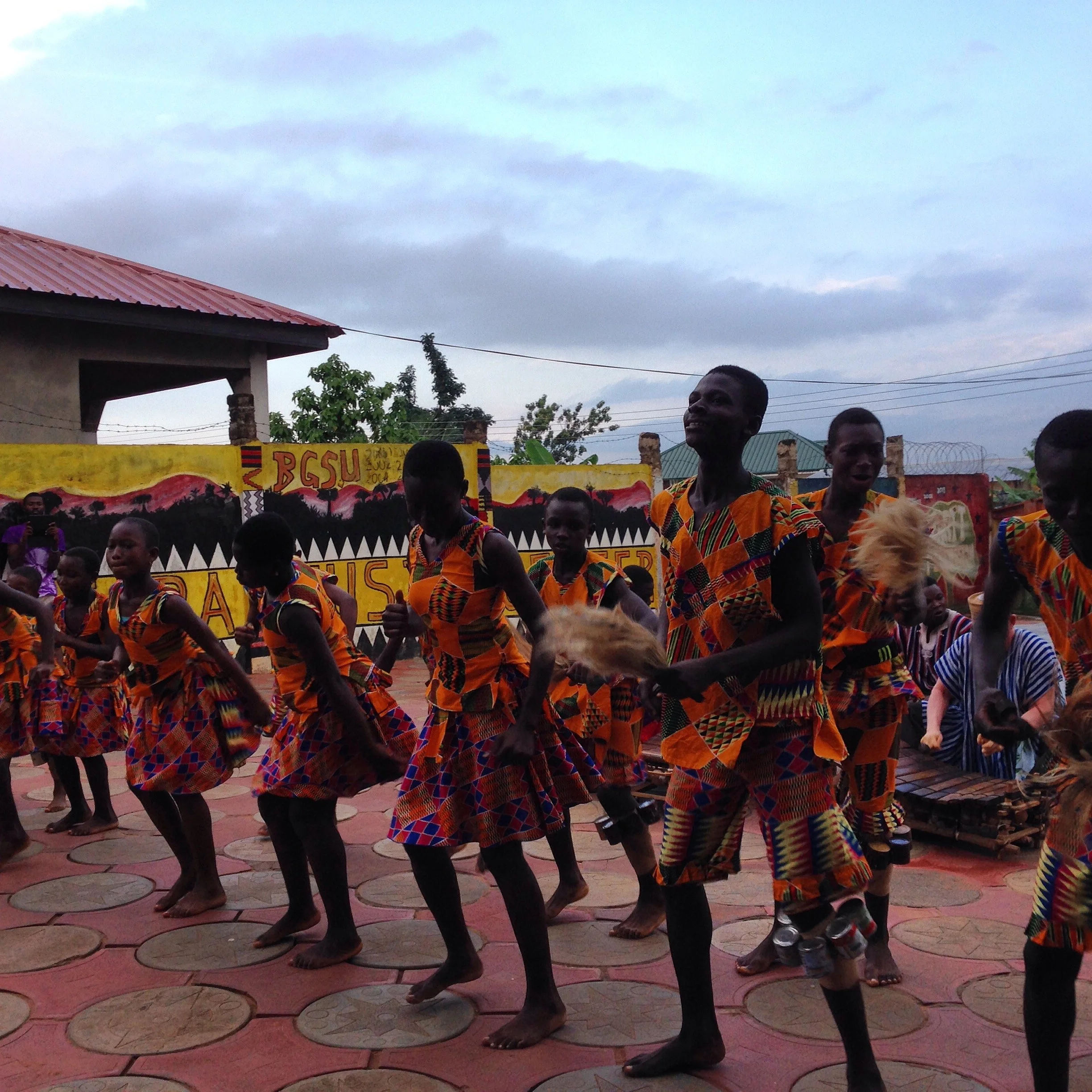The Brains and the Hands Aren’t Together
This morning, as I was disaster-ing my way through some transitions in a difficult gyil song, my teacher Jerome said, “I think you know it, but the brains and the hands aren’t together.” This disjunct could perhaps sum up 25 years of frustration in my European classical clarinet training. Where do we carry our music? What does it mean to know it? Where does it come from? I wonder to what degree the answers to these questions are culturally defined, and to what degree our experience of music is universal.
For 25 years (since the age of eight) I have been a captive of the printed page. I can sight read with gusto, play a 70-minute Mahler symphony on a few hours of rehearsal, and generally reproduce whatever is put in front of me, as long as the stand light doesn’t go out. But it occurred to me recently (in an encounter with music of the Balkans), that I had perhaps never actually HEARD music before–that it passed from the page through my fingers, out and away without my consciousness fully engaged in the sounds I was helping to create. (A bold statement from someone who has made a career out of orchestral performance.) The brains and the hands might as well have been strangers to each other. I see this sometimes in my students as well, a lack of aural consciousness of their own role in a soundscape. I came back to Ghana this summer to immerse myself in a musical culture that I have found to be more integrated than the one I was raised in. Music not only emanates from the core of our music and dance teachers and their instruments and voices, but it plays a significant role in daily life at the Dagara Music Center as well, up to and including the rhythmical pounding of fufu.
I have always perceived the soul of music as something fleeting and inscrutable. Perhaps this comes from a learning culture that focuses on what is not yet: the idea of not ever being “good enough” is one that I inherited, and one that I grapple with daily. I suppose this is intended to support a US-American paradigm of continual growth that accompanies a residual sense of manifest destiny…but this externalized and internalized judgment also gave me a sense that the soul of music is something that exists outside of me, hovering just out of reach. Every now and then I grasp hold of its ethereal splendor, only to watch it dissolve into vapors.
Jerome encouraged us to open ourselves up to the music: “if the box is closed, you can’t let anything out or anything in.” Meanwhile, Bernard describes really good performances as though “the drum picks you up”, in reference to both musicians and dancers. A Greek musician I know told me recently, “you’re playing for the lead dancer. But not for his feet, for his soul.” There is a sense of collaboration here, with those mystical forces that never seemed to belong to me before. It is as though the music is trying to grab hold of ME, and I have to learn how to let it.
I wonder if this is also what my US-American teachers meant when they said things like, “it’s not convincing” and “serve the composer.” Arnold Schoenberg emancipated the dissonance in 1912 in an effort to cast off hundreds of years of European conventions and allow the soul of music to emerge in a more pure form.
Perhaps we are all trying to access the same forces, in a language that changes according to our cultural context. I have been bound by the teleological foundations of my own inherited musical traditions, but I’m finding myself increasingly captivated by traditions from around the globe that seem grounded more in presence and immediacy. I wonder what this mean for me as a European classical performer.
I suppose I returned to Ghana to try to understand what it will take to bring the brains and the hands (and the heart?) together. I have not been disappointed.
*** First published as a guest post for the Dagara Music Center blog.

